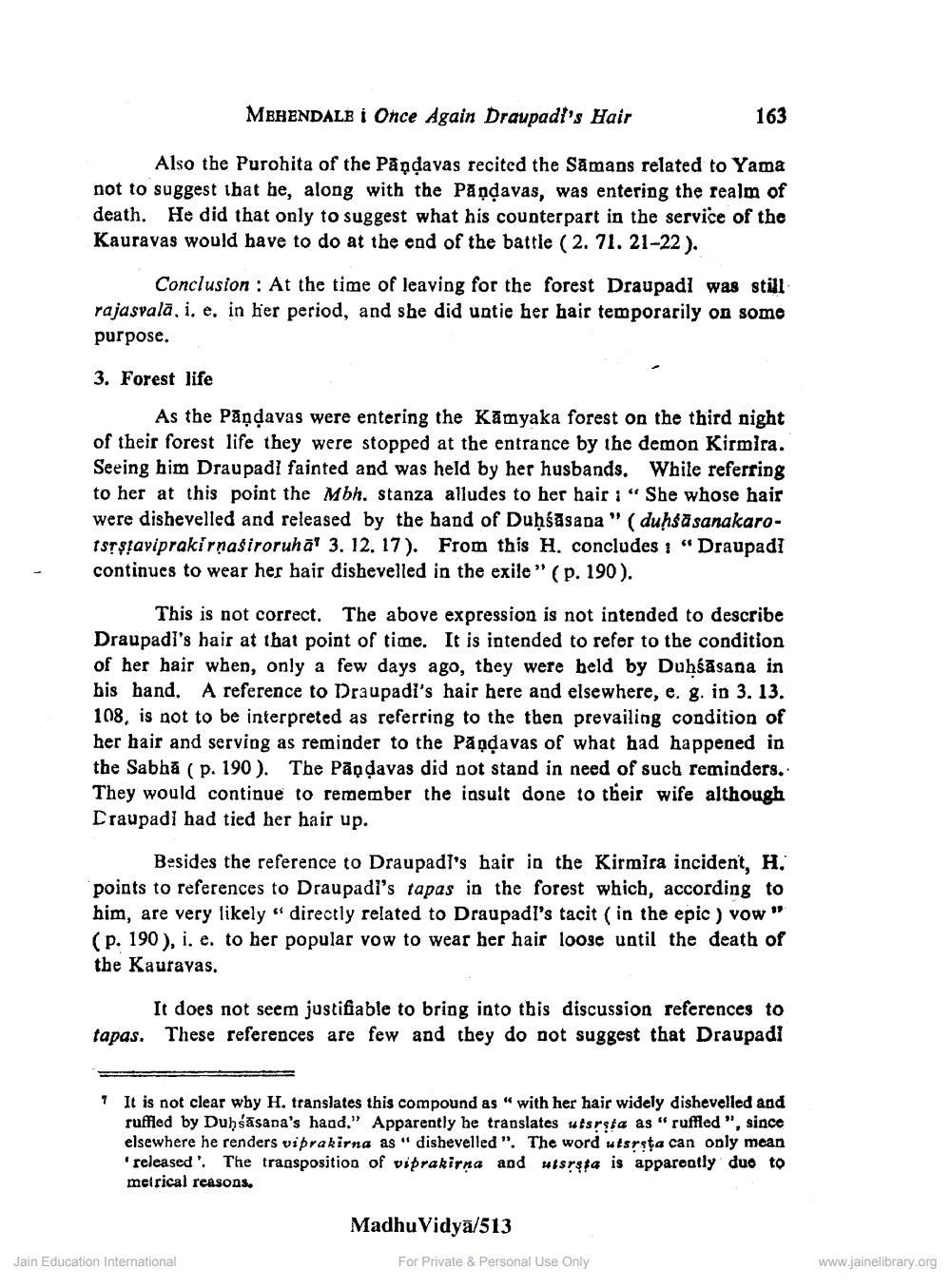________________
MEHENDALB i Once Again Draupadt's Hair
163
Also the Purohita of the Pandavas recited the Samans related to Yama not to suggest that be, along with the Pandavas, was entering the realm of death. He did that only to suggest what his counterpart in the service of the Kauravas would have to do at the end of the battle (2. 71. 21-22).
Conclusion : At the time of leaving for the forest Draupadi was still rajasvalā, i, e, in hier period, and she did untie her hair temporarily on some purpose.
3. Forest life
As the Pāņdavas were entering the Kāmyaka forest on the third night of their forest life they were stopped at the entrance by the demon Kirmira. Seeing him Draupadi fainted and was held by her husbands. While referring to her at this point the Mbh. stanza alludes to her hair : “ She whose hair were dishevelled and released by the hand of Duhsasana " ( duhsāsanakaroistsțaviprakirnaširoruhā' 3. 12. 17). From this H. concludes: “Draupadi continues to wear her hair dishevelled in the exile" (p. 190).
This is not correct. The above expression is not intended to describe Draupadi's hair at that point of time. It is intended to refer to the condition of her hair when, only a few days ago, they were held by Duhśāsana in bis hand. A reference to Draupadi's hair here and elsewhere, e. g. in 3. 13. 108, is not to be interpreted as referring to the then prevailing condition of her hair and serving as reminder to the Pāņdavas of what had happened in the Sabhā (p. 190). The Paodavas did not stand in need of such reminders. They would continue to remember the iasult done to their wife although Draupadi had tied her hair up.
Besides the reference to Draupadi's hair in the Kirmira incident, H. points to references to Draupadi's tapas in the forest which, according to him, are very likely " directly related to Draupadl's tacit (in the epic ) vow" (p. 190 ), i. e. to her popular vow to wear her hair loose until the death of the Kauravas.
It does not seem justifiable to bring into this discussion references to tapas. These references are few and they do not suggest that Draupadi
" It is not clear why H, translates this compound as “ with her hair widely dishevelled and
ruffled by Duhśāsapa's hand." Apparently he translates utsrsta as "ruffled ", since elsewhere he renders viprakirna as " dishevelled ". The word utsrsta can only mean
released'. The traasposition of viprakirna and utsrsta is apparently due to metrical reasons.
Madhu Vidyā/513
Jain Education International
For Private & Personal Use Only
www.jainelibrary.org




